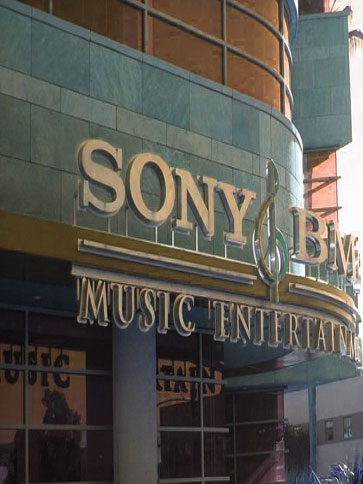 After you have promoted yourself on the internet, performed in a few shows, and sold at least 15,000 units of your songs, there are additional steps that you should know on how to get signed.
After you have promoted yourself on the internet, performed in a few shows, and sold at least 15,000 units of your songs, there are additional steps that you should know on how to get signed.
1. Create a promotional package or press kit. Make a brief, professional looking and very interesting bio about yourself. Write about what your goals are and what you can “bring to the table” of any record label that gives you the opportunity to get a record deal. Add several pictures with the swagger of your type of music, a few business cards, and a copy of your best singles. Record executives will only listen to each song briefly, so make sure your songs have the potential to impress them during the first 15 to 30 seconds. And, make sure your package will stand out with loud colors, images, or anything else that will grab the executive’s attention over any other package. Keep it clean and professional, though.
2. Find the appropriate record labels that sell your kind of music. Send your package only to the labels that deal with the type or genre of music that you make. These are the labels that will already have a market of potential fans in place that you can tap into. Go for the independent labels. You will get more response and better results from them than you would a major record company. That is unless you are another Madonna or Michael Jackson, of course.
3. A label responds. Contact a&r of that company. Set up an appointment and be prepared for the interview. Do research on that company. Make sure the label has a good reputation. There’s nothing worse than a shady long shark record label that kills an innocent person’s dreams. When you get ready for your interview, you have to look the part. Display the image. Leave the right impression. That means if you’re a rock band, dress like one. Don’t show up at the interview in a three-piece suit looking like you’re going to Sunday service.
4. The interview goes well, but don’t stop. It may take a while for them to call you back. Keep in contact with that label while sending packages to other labels. Contact a&r of other companies and set up interviews with them. Make more options available and avoid disappointment.
5. Getting signed. Okay! You’ve found the label that you believe will make you rich and famous. Make sure you know what you are getting yourself into. Read the contract before signing on the line, especially the fine print. A two- or three-album record deal may be cool. But, something like a ten-album deal may not be a good idea. You’re obligated to record those ten albums, which could take a very long time. That may sound sweet now, but you might be stuck in a bad deal for years, making less money than you are worth. You should try to get legal representation to advise you during the deal.
6. Signed. AWESOME!! When you finally sign to a good record deal, you won’t be relaxing yet. Now, the real work is about to start. You have to do promotions on a grander scale now. There will be more performances and interviews. You will have a busy work schedule every single day for the next few months before the record sells and royalties start to kick in. And the record label will want you to do plenty of concerts because that is really where the money is during these times in the music industry. Make sure you know what percentage the label is entitled to from your concerts.
Getting a record deal is easier said than done. It could take months or even years to get the attention of record labels. I believe 99.9% of us aren’t lucky enough to get a record deal and have overnight success. We have to work long and hard for it. There is an e-book called “The Easy Record Deal: The Ultimate Guide to Getting a Record Deal” that has thorough info on everything you need to know and do in order to get a legitimate record deal. It has contact information for many of the top independent and major labels. It’s something worth checking out. This e-book can show you what the steps to getting a record deal are.
Written by Ninja Keet